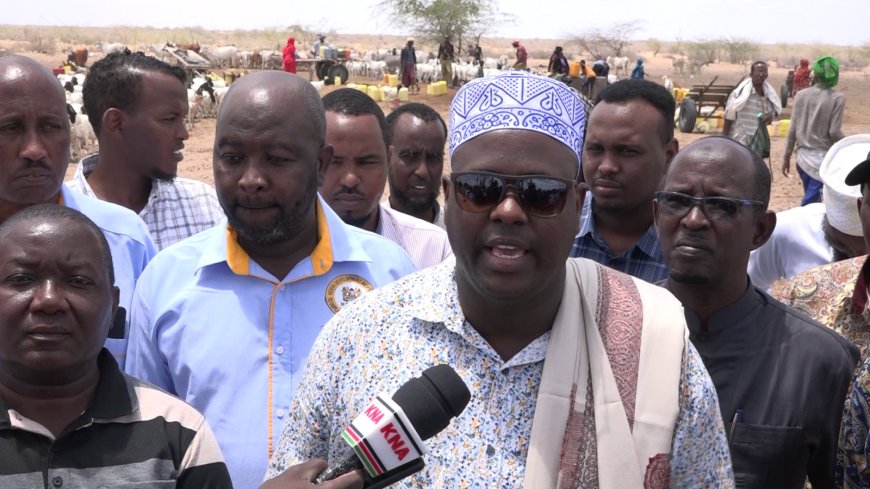Government to help refugee-hosting communities - PS Dakota

Garissa
Thursday, September 21, 2023
KNA by Erick Kyalo
ASAL and Regional Development Principal Secretary Idris Dokota has said that the government is committed to ensuring that the livelihood of the people in communities hosting refugees is not negatively affected by the influx of refugees which causes competition for resources.
Over the years, conflicts, terrorist attacks, and natural calamities such as recurring drought and floods have caused thousands of Somalians to move to Kenya to seek asylum.
At the same time, as a result of the conflicts and civil war in Sudan, thousands of people have also moved to the Kakuma refugee camp in Turkana County.
Vulnerable groups, including people who flee from homes and countries faced with conflicts and violence to other safer countries and communities, put pressure on the social economic infrastructure among the host communities.
Sub-Saharan Africa bears the brunt of the refugee problem. It is estimated that more than 26 percent of the world’s refugee population is found in this part of the world. This is attributable to the incessant socio-political conflicts in countries such as Sudan, South Sudan, the Democratic Republic of Congo, and Somalia.
Settlement of refugees in the country causes the host communities to share their resources; from water, pasture, and land to simple things like fire hood.
According to the UNHCR report (December 2022), Kenya hosts about 574,000 registered refugees. The majority of the refugees are accommodated at Kakuma (248,929) and Dadaab (233,661) refugee camps.
To control the situation, the government with funding from the World Bank in 2017, came up with the Kenya Development Response to Displacement Impacts Project (KDRDIP) aimed at helping the host communities compensate for what they had to share with the refugees.
Speaking after touring several projects under the KDRDIP in Dadaab constituency, the PS said that the objective of the project is to improve access to basic social services, expand economic opportunities and enhance environmental management in the refugee hosting communities.
Dokota said that KDRDIP contributes to the country’s key development priorities of reducing poverty and inequality. He also noted that it is part of the government initiative to social service delivery for vulnerable groups and marginalized communities as envisaged in the Constitution.
“Resources are always scarce here so the project came to neutralize that because we have an influx of refugees here so we have an issue to do with suppressed resources. This will help in bringing equality when they have income-generating activities to grow the economy,” Dokota said.
“Because of the continuous effects of droughts, we have engaged the communities in nontraditional livelihood such as income generating activities so that they can improve on their economic condition and act as a stimulus in this particular area,” he added.
Members of the county assembly present, Aden Hassan (Dertu), Hajir Mohamed Dahiye (Abakaile), and Mohamed Sheikh Abdi (Labasigale) called on the government and the World Bank to find a way of extending the project for five more years, saying that it had brought tremendous benefits to the common citizens.
A total of 4,577 Community Groups across the five sub-counties have received grants under the project’s Livelihood Program. Each of these groups received Sh. 500,000 as grant.
Out of this number, 988 were women groups, comprising 21 percent, youth groups comprising 19 percent of the beneficiaries, and two percent belonged to People Living with Disabilities.
KDRDIP is a five-year project, funded through a loan of Sh. 10 billion from WB and a grant of USD 11.58 million from the Danish government.
The project provides support to communities hosting the refugees in Garissa, Wajir, and Turkana Counties. The funds were shared based on the percentage of the host population and geographical area for each of the sub-counties.
Courtesy; KNA
What's Your Reaction?



































































































































































































































































































